Sections
- Antibiotics
- Artificial Sweeteners
- Aspirin & Stroke
- Blood Pressure Medications & Mineral Depletion
- Calcium
- Coenzyme Q10
- Diet & Lifestyle
- Food Allergies
- Nutritional Frontiers Purity & Potency
- Possible Imbalances From Medications
- Quality & Patented Research
- Quality, Purity, & Potency
- Targeted Nutrition
- The Benefits of Multivitamin Use Substantiated
- The Dangers of Over-The-Counter Pain Medications
- The Ins & Outs of Whey Protein
- Vitamin D Deficiency
- What’s In Your Multivitamin?
- Why Choose Nutritional Frontiers Vegetable Protein Over Competing Brands
Artificial sweeteners are food additives commonly added to packaged, processed foods to make them sweeter. They are particularly prevalent in low-fat or non-fat foods, as well as foods marketed towards people with diabetes. Also called sugar substitutes, artificial sweeteners were designed and synthesized to taste like sugar without having the calories or carbohydrate content of real sugar.

The most common artificial sweeteners in use today in the USA are aspartame (NutraSweet, Equal), acesulfame potassium (Nutrinova), saccharin (Sweet’N Low), and neotame (NutraSweet).
Artificial sweeteners were originally chemicals being developed for another purpose when it was discovered that they were sweet. Now, they are prevalent in processed and packaged foods. There is an Acceptable Daily Intake (ADI) limit for each sweetener, established to help protect consumers from the possible health risks of excessive consumption. While the issue of health risks from artificial sweeteners remains hotly debated in the medical community, we feel that it is prudent to limit exposure and to emphasize whole, unprocessed foods and minimal sweets in the diet.
Health Effects of Ingesting Artificial Sweeteners
Saccharin – Several animal studies have shown an increase in bladder cancer from ingestion of saccharine. Human studies have not shown a clear cut increased risk of cancer. However, children and fetuses in particular are at risk for excessive exposure to saccharine beyond the ADI. This could potentially result in increased risk of the toxic effects of saccharin, including bladder distention, elevated urine osmolality and perhaps even bladder cancer.
Aspartame – Agencies in the USA and Europe have recognized aspartame as being safe, with an ADI of 40 mg/kg/day, except for people with a disease called phenylketonuria (also called PKU, this is an inherited disorder usually diagnosed in infancy). One of the main controversies surrounding aspartame is that many of the safety studies performed on this substance were funded by the aspartame industry. Obviously this presents a conflict of interest, as these studies unanimously asserted its safety for human consumption. Some aspartame side effects that are supported by other research include headaches and depression (especially in people with already established mood disorders).
Acesulfame K – Added to many foods, this sweetener has been in use since the 1980’s yet controversy surrounds it since acesulfame K contains a known carcinogen, methylene chloride. Long-term exposure to methylene chloride is associated with mental confusion, headaches, depression, nausea, cancer, liver problems, and kidney problems. Neotame is similar to aspartame but does not contain phenylalanine, so it is safe for people with PKU. It may carry the same risks as aspartame, and long term studies by independent researchers have not been conducted.
Weight gain – Some animal studies and at least one human study have shown clearly that ingestion of artificial sweeteners (particular diet soda) is associated with weight gain and obesity. Some studies do not show weight gain, but neither was weight loss achieved. This is obviously counterproductive to the stated intention of introducing artificial sweeteners into the food supply, since most people using them are seeking low calorie substitutes! The reason behind the lack of weight loss may be that artificial sweeteners could increase sugar cravings.
What To Use
Natural sugar substitutes are more desirable from a health standpoint, although the less sweetener added to the diet, the better, to help diminish our collective taste for sweets! In particular, people with metabolic syndrome (Syndrome X), diabetes, pre-diabetes, PCOS, obesity, and insulin resistance should minimize or eliminate sugar and sugar substitutes from their diets as much as possible- even natural sugar substitutes. Natural sugar substitutes include stevia, sorbitol, xylitol, and mannitol. Agave nectar, honey, brown rice syrup, molasses, blackstrap molasses and barley malt syrup are also sweetening agents that are naturally derived rather than synthetic.


